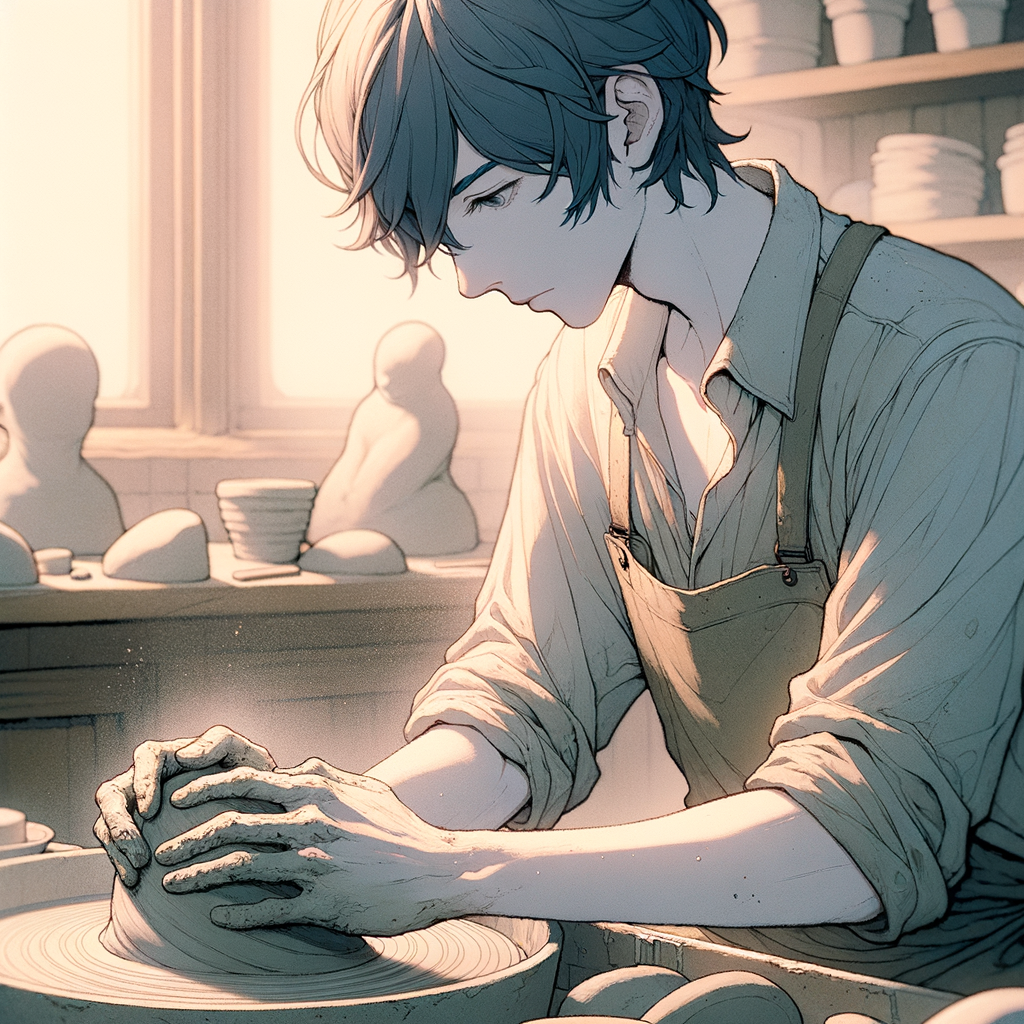In a small village nestled between lush forests and steep mountains, there lived a young sculptor named Eli. Known for his exquisite craftsmanship, Eli spent his days chiseling away at blocks of marble, turning them into stunning sculptures that the villagers admired greatly.
Despite the praise, Eli often found himself wrestling with doubt. Every compliment from others felt like a leaf carried away by the wind—pleasant but fleeting. He yearned for a deeper, more enduring sense of worth, but didn’t know where to find it.
One day, a wise old woman from the village, seeing Eli’s distress, approached him with a challenge. “Craft a sculpture not by the light of day, but in the deepest part of the night, without anyone’s eyes upon it,” she instructed him. “When you finish, do not show it to anyone. Instead, come to me.”
Eli was puzzled by the task but accepted it. That night, under the cloak of darkness, he chose his finest piece of marble and began to work. The lack of visibility made his task difficult, but it forced him to rely not on the approval of onlookers but on his sense of touch and his intuition about the stone.
Hours turned into days, and eventually, Eli completed his sculpture. It was a figure, neither entirely human nor entirely divine, an embodiment of his feelings and aspirations. He felt a profound connection with it, different from anything he had felt before.
Keeping his promise, he didn’t reveal his creation. Instead, he visited the old woman. “I’ve finished the sculpture,” he told her.
“And how do you feel about your work?” she asked.
“For the first time, I feel truly proud,” Eli confessed. “Not because of what others might think, but because I know its worth myself. It represents not just my skill, but my soul.”
The wise woman nodded, smiling. “You have discovered the greatest truth of all,” she said. “True value comes not from the fleeting words of others but from the deep and quiet place within you. What you think about your work, how you feel about your creations, is what matters most.”
Eli understood then that his search for validation from the village was like chasing shadows under the noon sun—always moving, never graspable. From that day forward, he sculpted not for the praise of his fellow villagers, but for the fulfillment that came from expressing his true self. His doubt slowly ebbed away, replaced by a quiet confidence that no external praise could rival.
And so, Eli became not just a sculptor of marble, but a sculptor of his destiny, carving out a life of inner richness that no external acclaim could ever match.
==============================================================================
The above is a parable based on my notes on the topic of self-perception and validation.
The fact that we tend to doubt ourselves despite the praise of others. The impact that people of authority unknowingly have on our self-belief.
The need to move to understanding and accepting ourselves, and valuing ourselves above all.

Leave a Reply